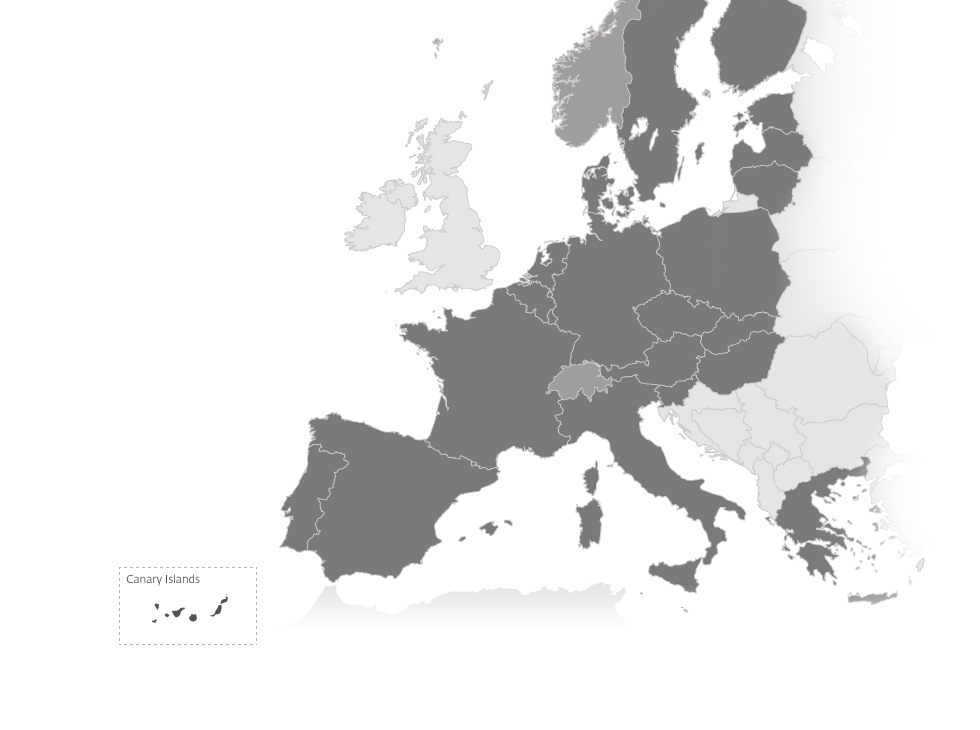The expansion and evolution of Frontex’s remit has been mirrored by budget increases. In its first full year of operations it had a budget of €19m and that has grown to €143m in 2015, a rise of 46% on 2014.
In total, it has received €862m of European taxpayers’ money since it was formed and in that time the number of people working at its Warsaw HQ has grown from 72 to 304.
Frontex receives over 90% of its current budget from the Commission, while the UK, which does not sit on the organisation’s management board, contributes €570,000. Norway gave €2.2m this year and Switzerland €3m.
The bulk of Frontex spending goes on its operations by paying countries for the equipment they lend, with ocean patrol vessels being its most costly items. However, these bills are relatively fixed in that they are determined by EU rate cards setting out what countries can charge for cars, personnel and fuel.
A Bureau analysis of the reimbursements issued by Frontex shows that in the seven years to 2014, more than €350m was reimbursed to 43 countries – including Schengen area states and others such as Albania and Turkey – for personnel and equipment.
Italy and Spain between them received more than €100m, reflecting the large number of boats and people they deployed to spot and rescue migrants and refugees in the Mediterranean.
Greece was compensated €28.6m in the period, while Iceland, which currently provides two large coast guard ships and crew and one aircraft, was reimbursed €21.8m over the seven year period.
Austria received €20m, while Germany and Portugal received €19m and €18m respectively. In contrast, the resources the UK provided for Frontex operations were worth €3.2m over seven years.
When it comes to spending on itself – on its staff, headquarters, publicity and branding, for example – Frontex has more discretion.
A Bureau examination of its accounts and contracts has found eyebrow-raising items.
As with all other EU institutions, there is a high proportion of relatively more expensive senior expatriate staff.
Of the 304 people employed in Warsaw on June 1 this year, 185 were non-Polish nationals.
The total wage bill in Warsaw is about €20m, with €1.5m paid out each year for expatriation allowances, another €1.3m for “family allowances” such as school fees, while €165,000 was spent last year flying people home for their annual leave.
Significant chunks of the Frontex budget is also reserved for parties and other social events.
Last year, Frontex awarded a contract worth €22,000 for a staff Christmas party at the top class Palac Prymasowski restaurant in Warsaw where 350 employees and their spouses celebrated the year end.
The Bureau also identified a contract worth €17,500 for eight chairs awarded to a furniture company in Finland in 2014. A Frontex spokeswoman said they were “black leather chairs with a trimension mechanism and a minimum warranty period of five years”.
Over the past two years alone, Frontex has also budgeted €137,000 for ‘Corporate Identity’.
This included one contract worth €38,500 to a Warsaw stationery company; according to the company’s invoice, Frontex paid €9,100 for 400 Parker pens and pencils, and another €5,160 for 4,000 Frontex logoed key rings.
And last December, Frontex incurred at least €1.8m of additional costs when it relocated its entire headquarters operation into Poland’s newest landmark building complex – the glass-clad Warsaw Spire centre where office neighbours include a leading international investment bank.










































